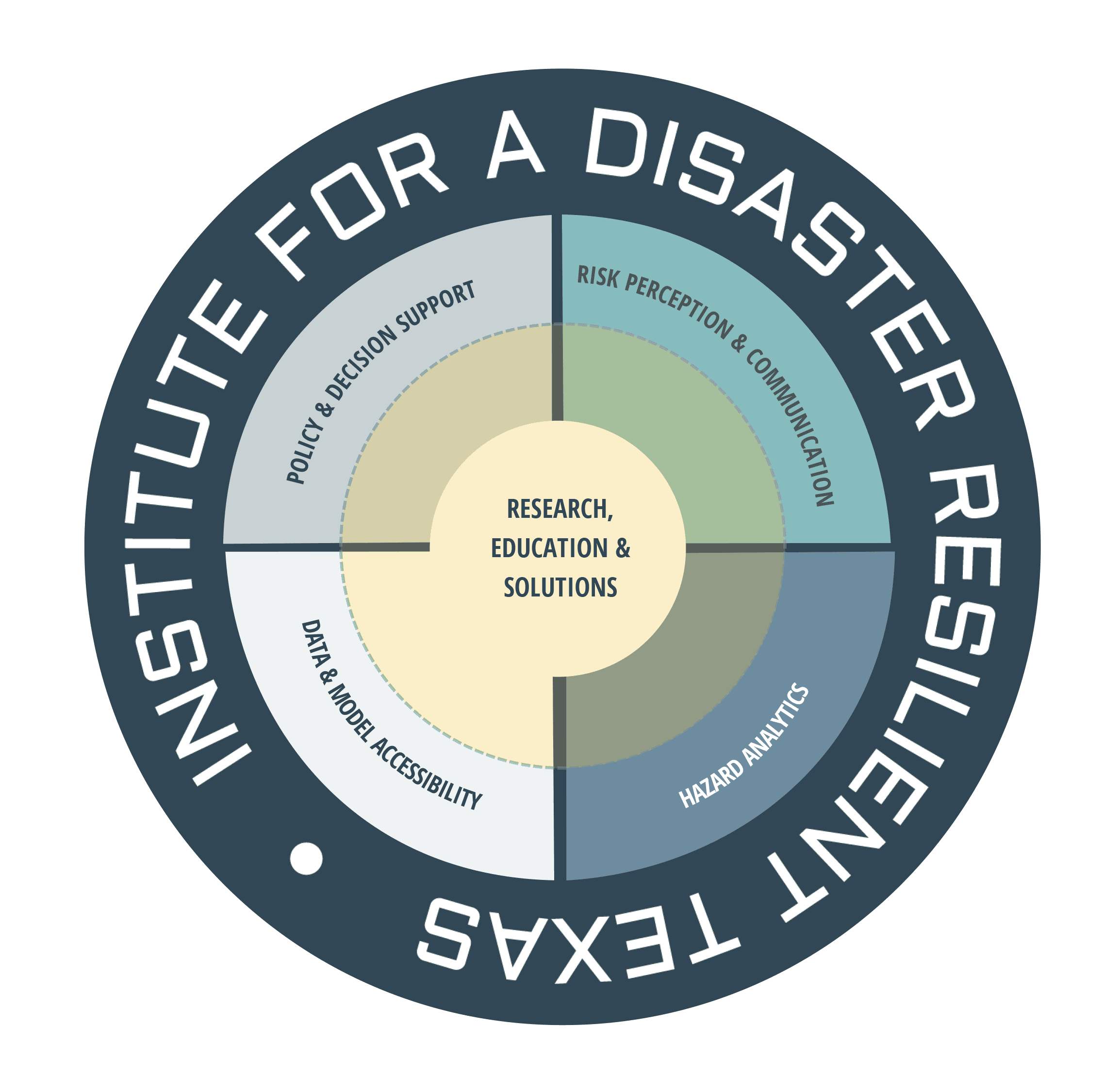
Vision
A disaster resilient Texas
Mission
To enhance disaster resilience by bridging the gap between research and decision making.
Strategy
Conduct research on disaster risk reduction in partnership with other leaders in the field.
Create a collaborative venue for learning and information sharing about disaster resilience.
Establish a technology platform to enable the analysis and visualization of natural hazard data in Texas.
Provide state agencies and other decision makers with decision-support tools, data analytics, and evidence-based policy solutions.
Promote evidence-based solutions for disaster resilience through outreach, training, and technical assistance.
Goals
Deliver innovative research and educational initiatives to enhance understanding of natural disasters.
Directly support decision makers with data analytics, training and technical assistance, and policy tools that foster resilient communities in disaster-prone landscapes.
Our Strategic Approach
Since the Institute’s creation, we have made great strides to accomplish our mission – through building partnerships with key state agencies and others, expanding our research team, and launching our signature data analytics platform, the Texas Disaster Information System. As we continue to mature as an organization, we have undertaken a strategic planning process to distill and communicate our mission internally and externally.
To learn more, review our Comprehensive Strategic Framework.



